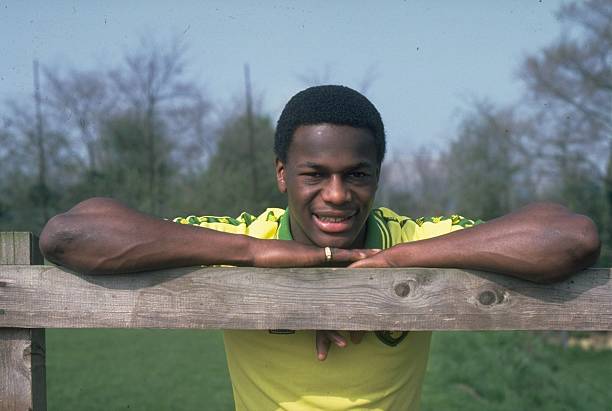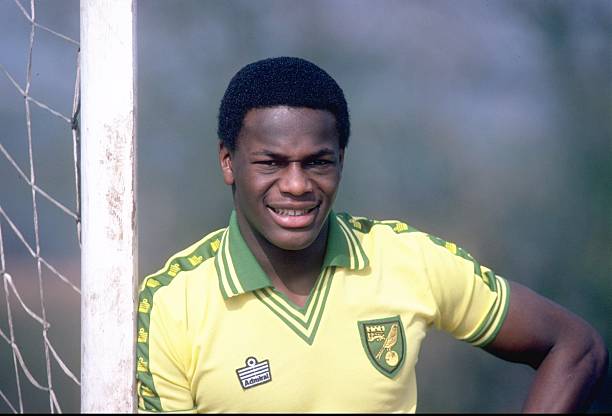Justin Fashanu was inducted into the Football Hall of Fame on Wednesday as a trailblazer in the game as the first £1m black player and the first professional footballer to come out as gay, a decision that was to cost him his life.

It has been 22 years since Justin Fashanu died by suicide because he couldn’t live with the abuse and rejection he faced for having the bravery to be himself.
Eight years was all it took from him coming out as gay until he ended his own life.
Eight years he got to be himself on this planet before he could take it no more, not because of who he was, but because of who others were. And continue to be.
No player has followed Fashanu’s lead in being so honest with the public. Can you blame them when the price can be so high?
“I came back from school and I was running around the house, Justin was following me, he had some strawberries and was trying to stick them in my face,” his niece Amal, recalled.
“That was the night I just can’t forget.
“I was so excited because Justin had come over and I was doing my homework with him. The following day, he was going to take me to Elton John’s studio and I was very excited because I wanted to meet Elton; he was one of Justin’s good friends.
“The next day, I was waiting and waiting and Justin never arrived.
“My dad came and picked me up and we did other stuff to take my mind off of it, but when I arrived in the evening, that was when I found out.
“That is the day that I will remember for the rest of my life.”
Amal Fashanu runs the Justin Fashanu Foundation in memory of her uncle to tackle homophobia, racism and mental health issues in football but she still rightly holds many fears for gay friends within the game.
“I want to protect them to the point where i want them to see that it will be a good experience for them to come out, and that is it something good and positive for them to just be who they are,” she said.
“But with football, it is a dark, secretive world. It would have to be a tough footballer, being realistic.
“He would have to have a thick skin. I can’t lie and say it will be a rosy path and they are going to throw flowers at you. Obviously not.”
And that’s 22 years after Fash took his own life. Imagine what it was like for him then.
Amal will collect the award on behalf of her uncle, the first £1m black footballer, on Wednesday, adding, “It’s like he’s finally being recognised. People forget just how talented he was at football because he was gay.”
Even his brother, John Fashanu, admitted to paying Justin £75,000 not to tell anyone he was gay.
“Initially I didn’t believe him. When I confronted him and he said he was gay, I just thought he was doing it for attention,” John admitted.
“Of course you’re gay,’ I thought. ‘Stop showing off. You’re trying to take my glory. You’re not going to do it. I’m the No1 footballer, I’ve taken your position, I’m now in the Premiership and playing for England. You’re now smoking out, having injuries and you just want to take my platform”
Thankfully, John has changed his views and now works with Amal at the foundation.
“Thirty years ago, when I was at my peak playing football, the climate wasn’t conducive for anybody to come out,” John said. “It wasn’t conducive for anyone to say they were bisexual, homosexual, LGBT.
“But times have changed. The reaction has been overwhelming. It has been amazing. It’s almost like people are saying now: “Please come out. Have a free spirit. Have a free will. Be who you are”. There are a lot of people we hope to inspire to be free to come out and nobody will persecute them as I did with my brother many years ago.”
Sadly, this sentiment is only ever really uttered by non-queer people.
Those who live queer lives know only too well that society hasn’t moved on anywhere nearly as much as it likes to tell itself it has.

